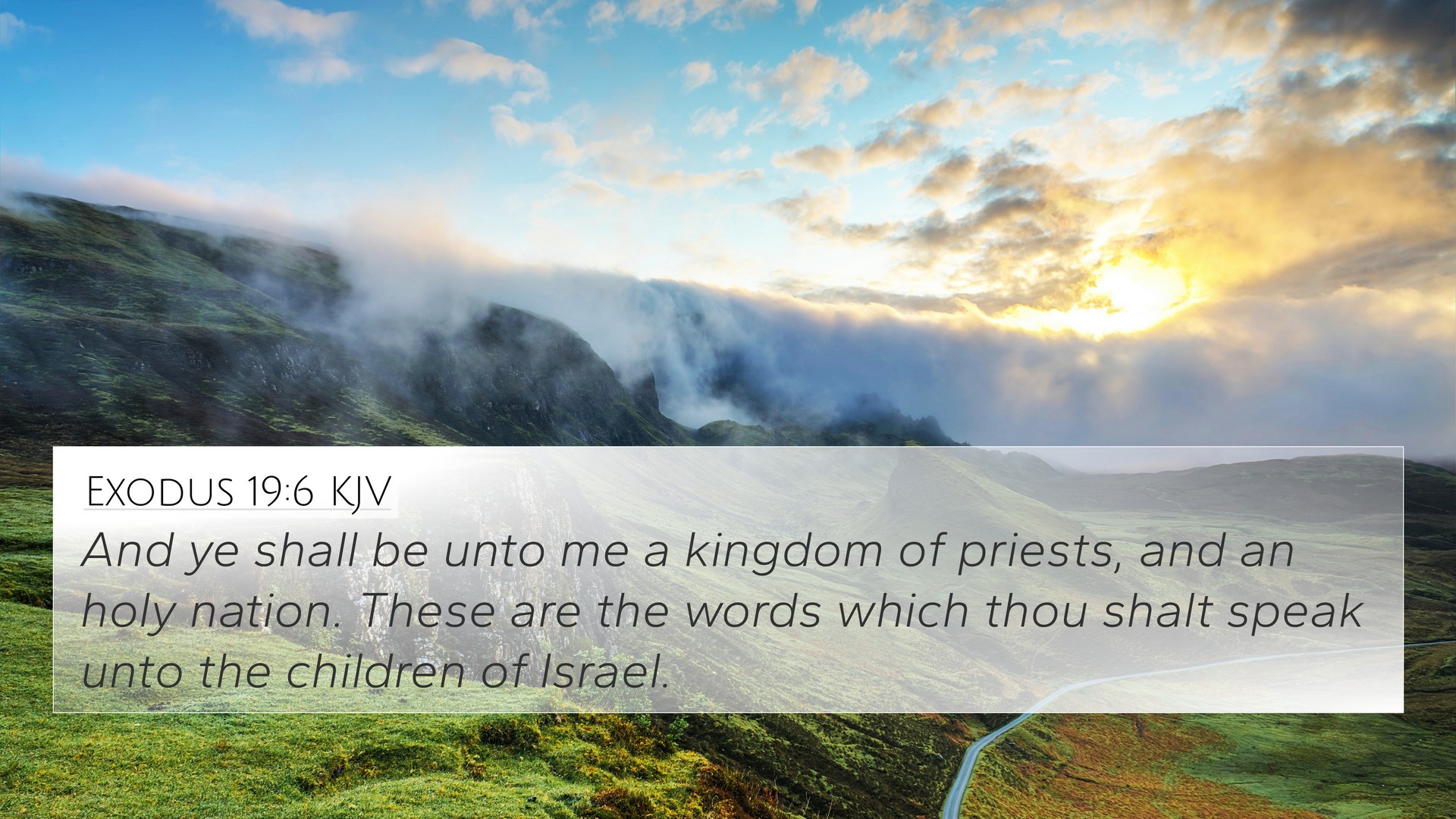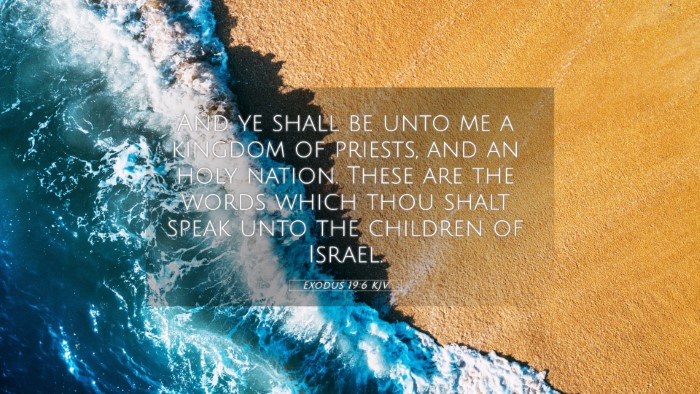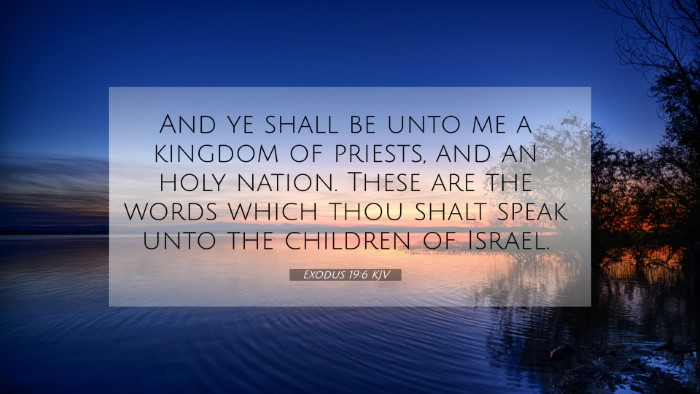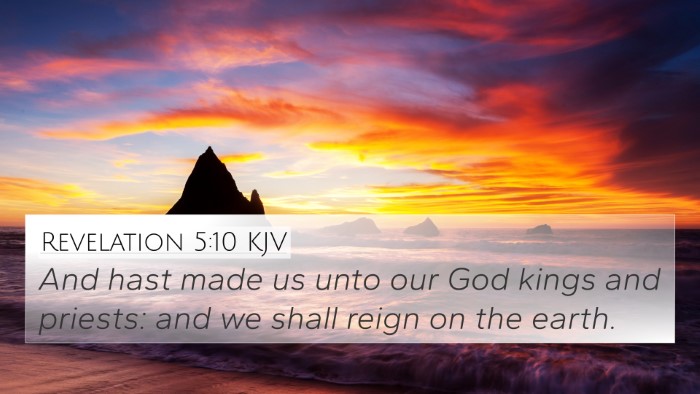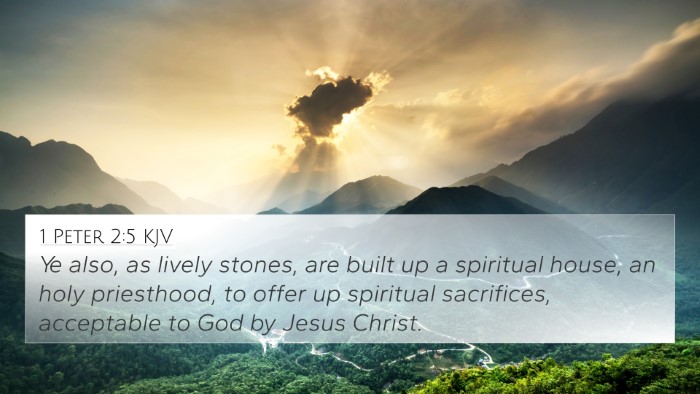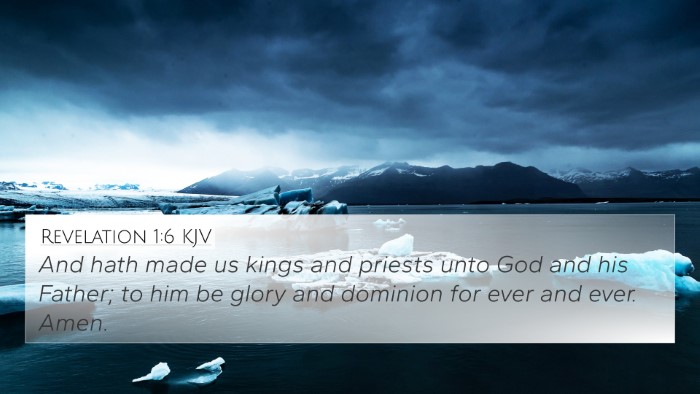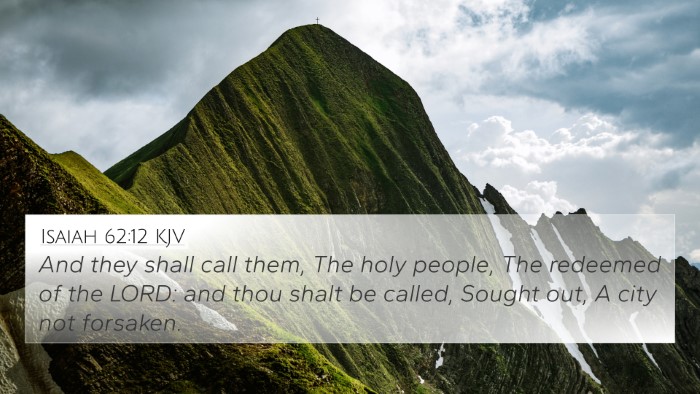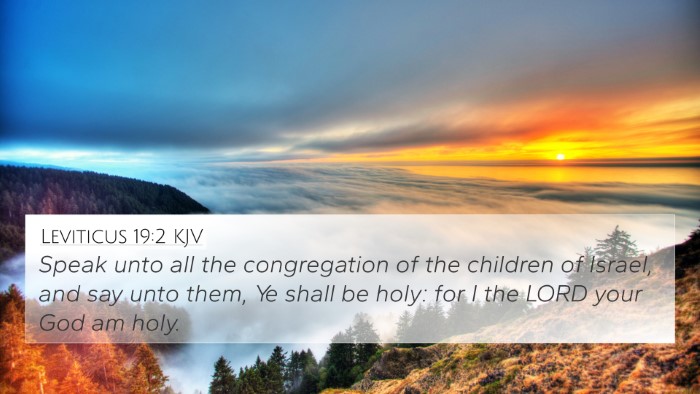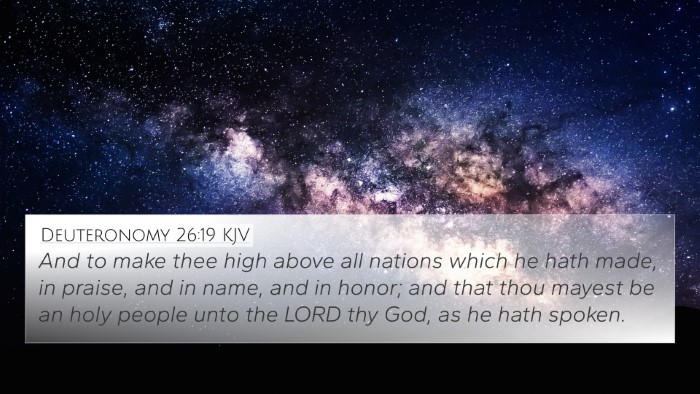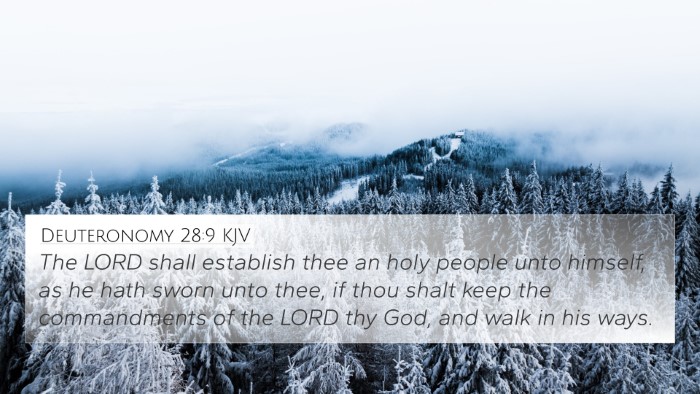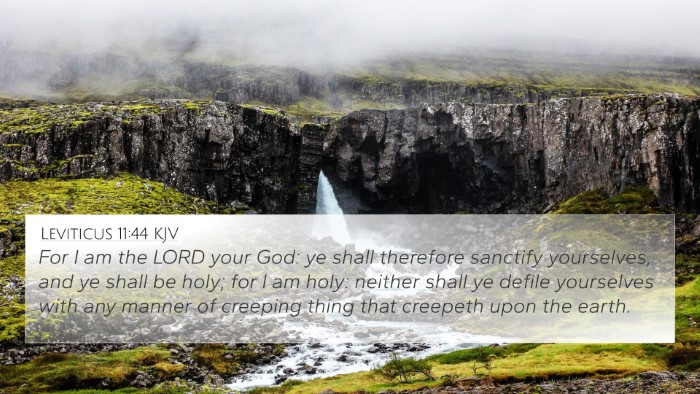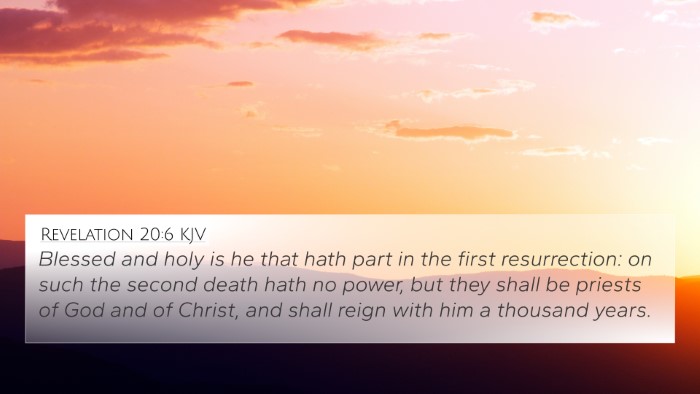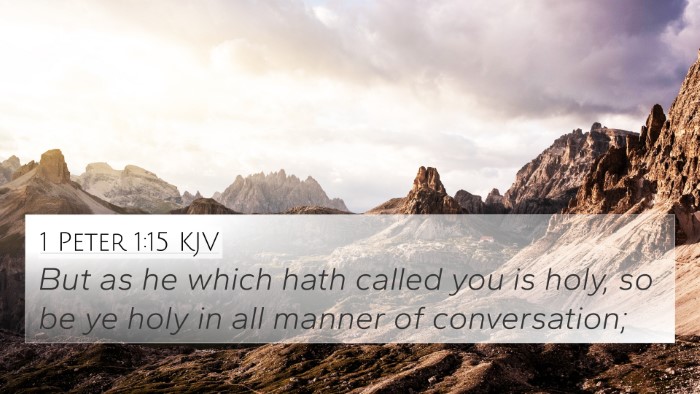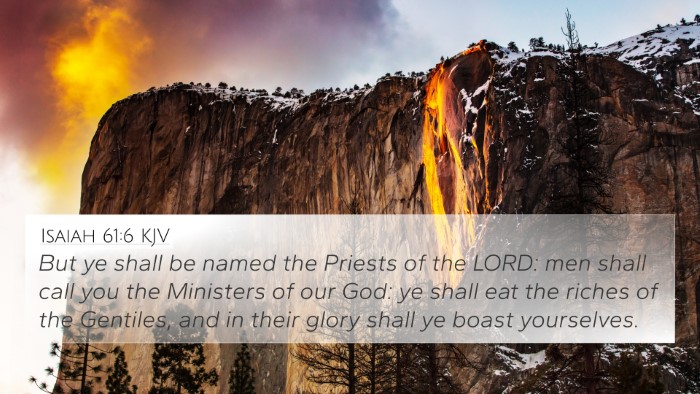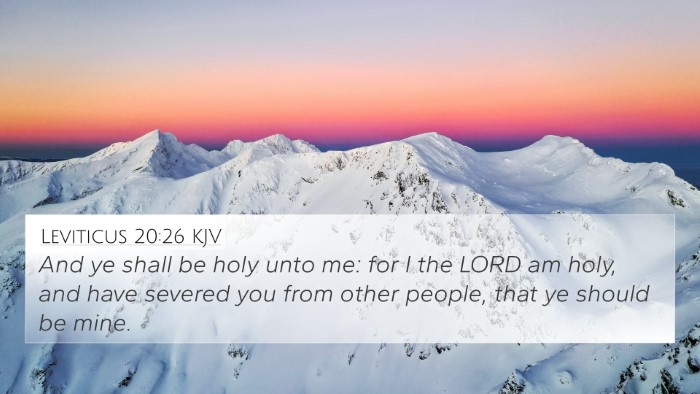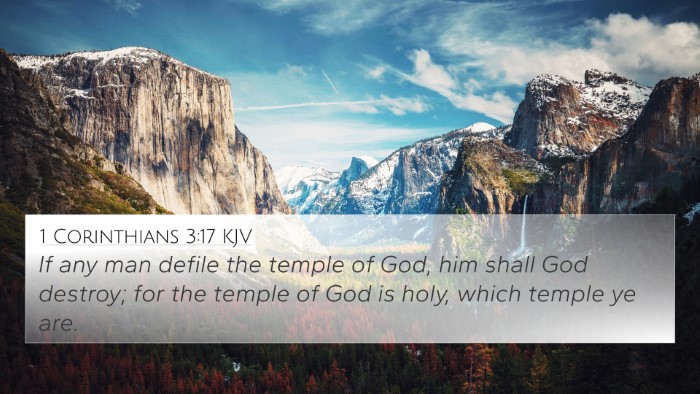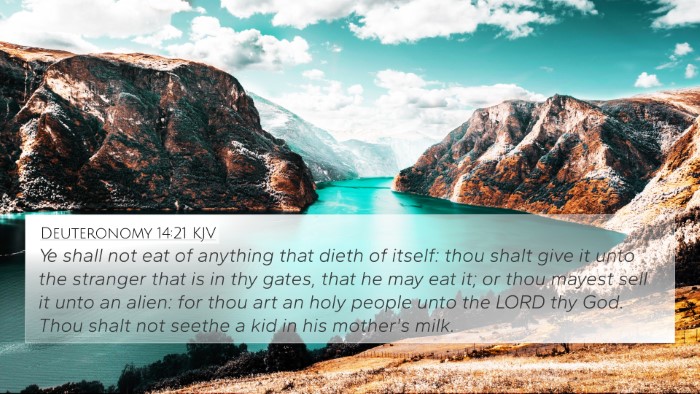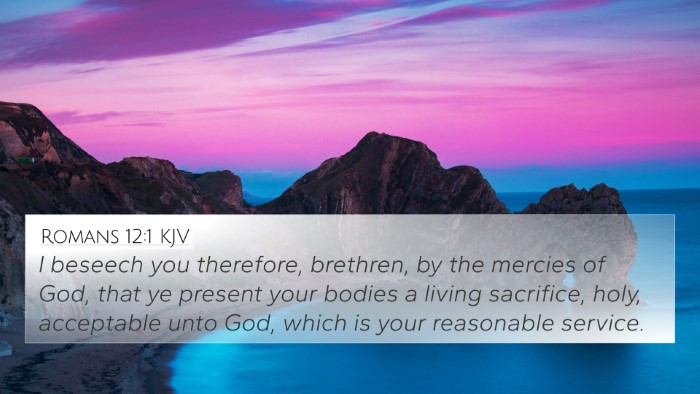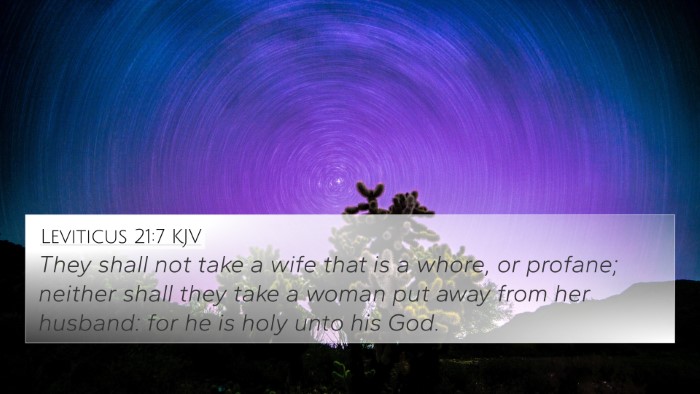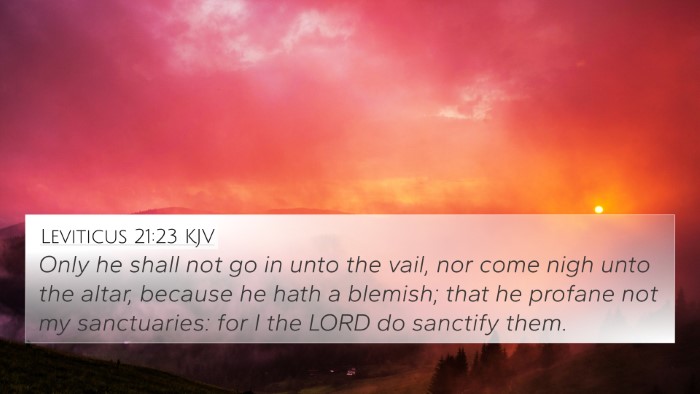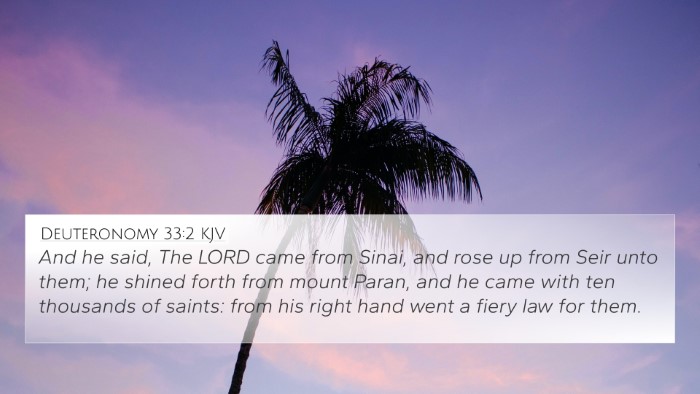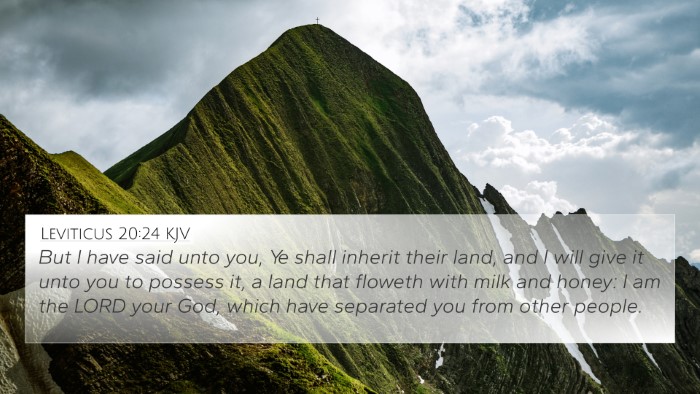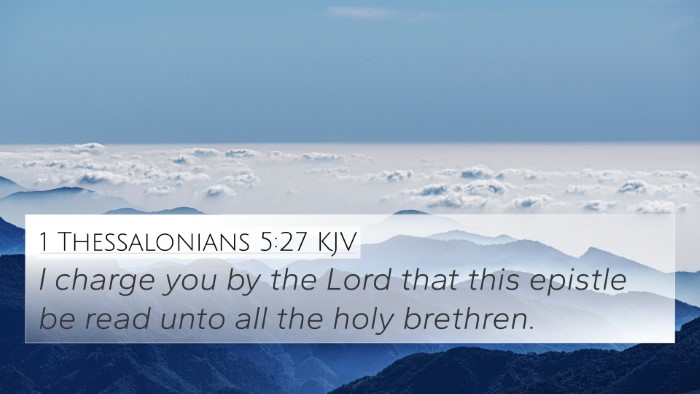Exodus 19:6 - Summary of Meaning
Exodus 19:6 states, "And you shall be to Me a kingdom of priests and a holy nation." This verse is a pivotal moment in the history of Israel, as it describes the significant calling and designation of the Israelite people in their covenant relationship with God.
Insights from Commentaries
This verse outlines the purpose and identity of the Israelites as the chosen people of God. According to Matthew Henry, this calling indicates that the people were not only to serve God but also represent Him to the world as a holy and set-apart nation. They were to be likened to a kingdom of priests, emphasizing their spiritual responsibilities.
Albert Barnes also highlights the dual role of the Israelites, emphasizing both their priestly duties and their collective holiness. This indicates that their lives and actions were to reflect God's character, setting an example to the surrounding nations.
In the view of Adam Clarke, the term "kingdom of priests" emphasizes the priestly function that the whole nation was expected to fulfill, indicating that they had direct access to God and were required to maintain holiness to serve effectively in this role.
Key Themes
- Divine Election: God chose Israel for a specific purpose.
- Holiness: The requirement of the Israelite community to live in accordance with God's standards.
- Priestly Function: The nation was to mediate God's presence to the rest of the world.
- Covenantal Relationship: Emphasizes the agreement between God and Israel.
- Identity: Establishes Israel's national identity as God’s special possession.
Cross References
- 1 Peter 2:9: "But you are a chosen generation, a royal priesthood, a holy nation..." - Parallel themes of holiness and identity in the New Testament.
- Isaiah 61:6: "But you shall be named the priests of the Lord; they shall call you the servants of our God." - Affirms the priestly identity of believers.
- Revelation 1:6: "And has made us kings and priests to His God and Father." - Reflects the royal and priestly status believers have through Christ.
- Deuteronomy 7:6: "For you are a holy people to the Lord your God; the Lord your God has chosen you..." - Reiterates the theme of Israel’s special status.
- Exodus 34:19-20: Speaks of God's claims on the firstborn, highlighting the concept of holiness and belonging to Him.
- Malachi 2:5-7: Describes the priest's duty to preserve knowledge and provide guidance.
- Romans 12:1: Calls believers to offer themselves as a living sacrifice, linking to the priestly role.
- Hebrews 10:19-22: Expounds on the access to God that the church has as a priestly community.
- Psalm 135:4: "For the LORD has chosen Jacob for Himself, Israel for His special treasure." - Highlights the chosen nature of Israel.
- Exodus 28:1: References the priestly garments, grounding the significance of the priestly role.
Connections and Thematic Analysis
The connections between Exodus 19:6 and the selected cross-references illustrate the continuity of God's calling from the Old Testament to the New Testament. Both the Old Israel and the New Testament believers are called to be set apart, representing God in their lives and actions. The consistent theme of holiness, priesthood, and divine election emphasizes that God’s intention has always been for His people to function as a light to the nations, guiding them towards a relationship with Him.
This cross-referencing offers a rich landscape for understanding biblical themes, particularly through tools such as a Bible concordance or Bible cross-reference guide. These resources enable readers to delve deeper into the scriptures, tracing links and understanding the intricate web of connections that bind the biblical texts together.
Practical Application
For those engaging in cross-reference Bible study, it's important to recognize how themes of holiness and priesthood apply to our lives today. Believers are called to embody these themes by living out their faith in practical and impactful ways, serving as mediators of God’s grace and truth to others.
In summary, Exodus 19:6 is a profound statement of the identity and purpose of God’s people. By understanding its connections and implications, one can appreciate the depth of God’s Word and its relevance across time and cultural contexts.
